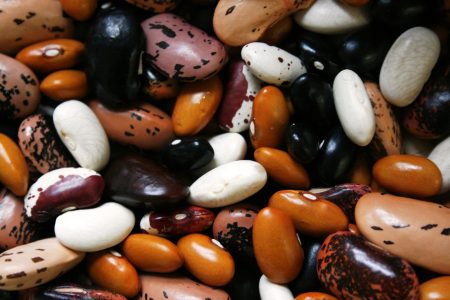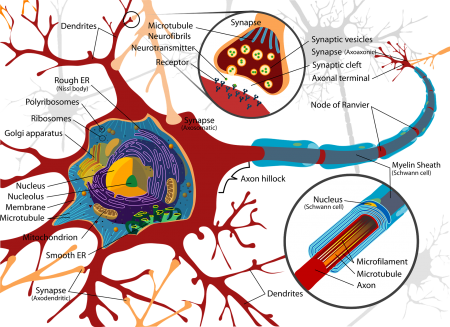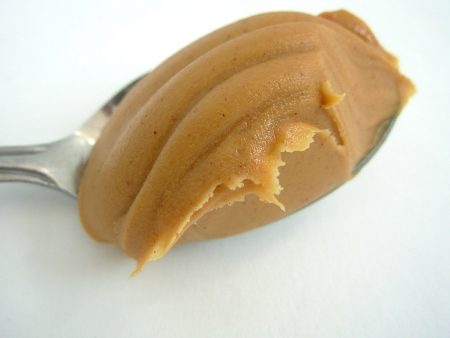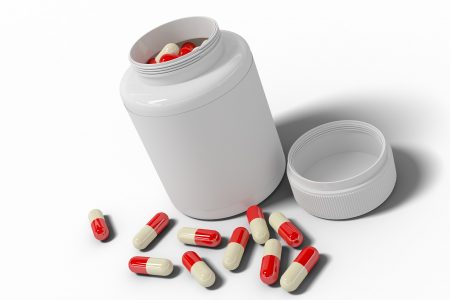Folate Versus Folic Acid
The Difference is Very Important
If you are taking folate or folic acid in supplement form, go right now and get the bottle and read the back label to see which form you are taking, then read this article.
Folate is the most common vitamin deficiency in the world! The reason for this is because our diet has been changing from one of whole foods to one of processed foods. Plants are your richest source of folate and most people are not consuming plant foods daily, let alone meeting the healthy requirements (5 cups of veggies and 2 servings of fruits daily).
Yes, folic acid is added to all that processed food you are eating and yes, it has helped to reduce folate deficiency but continue reading to see why this isn’t such a good idea for your health in the long run.
You may know that folate is important during pregnancy to avoid neural tube defects and hence the reason why grains and cereals have been fortified with folic acid, starting in 1998 in the United States. Thus, if you eat a diet rich in boxed, packaged, processed foods you are probably getting a lot of folic acid in your diet.
What Does Fortified Mean?
Fortified foods are those that never contained these nutrients but have been added to them. For instance, you may see milk now fortified with vitamin D. They are adding a nutrient into the product that has never been there. If the product says enriched, this means the nutrients have been lost in processing and so nutrients (in a cheaper, less absorbable form) have been added back in.
Your grains and cereals that are fortified with folate are fortified with the synthetic form which is folic acid. This may sound great, but you don’t want too much folic acid in the diet- what you do want is folate in the diet. Many people use folate and folic acid in a conversation interchangeably but should not as they are not the same and do not have the same impact on the body.
What is Folate?
Folate (B9) is found in whole foods such as in darky leafy greens. (Think foliage when you hear the word folate). You may also see it in the active form worded as 5-MTHF or 5-methylatetrahydrofolate on supplement bottles. Natural folate can also be called folinic acid.
Natural folate is essential for human health and we need it daily in our diet. Folate has a role in cell replication and growth. It is needed for the synthesis of your neurotransmitters, serotonin, dopamine and norepinephrine. Folate is also needed for red blood cell formation, digestion, blood pressure, oxygen utilization, energy production, growth, brain and mood health, sleep and physical strength, so you can see how vital it is to your health!
What is Folic Acid?
This is the synthetic form of B9. This is the form that is added to processed food products and is found in cheaper supplements of poor quality. Folic acid is not natural to the body. Folic acid requires an enzyme in the liver to metabolize it before it can be converted into the natural folate form. Folate from food or supplements does not have to take this step and instead is easily absorbed and utilized by your body.
The problem is this: if you take in too much folic acid, or if you are unable to convert folic acid into folate, the folic acid builds up in the body and is known as oxidized folic acid. It is estimated that just 266-400 mcg. Of folic acid per day from processed foods or a supplement can lead to build up of unmetabolized folic acid in the body.
Folic acid can be found in bread products, flour, cornmeal, rice, pasta, and other grains.
What Happens When You Have Unmetabolized Folic Acid in Your Body?
- It can suppress your natural killer (NK) cells. You want NK cells to function properly to kill off viruses and cancer-very important!
- Once your NK cells are impacted, so is your immune system function
- May impair DNA synthesis
- Increase your cancer risk
- Too much unmetabolized folic acid in your body may block how some medications work in the body
Folate and Mental Health
As stated above, for your neurotransmitters to function properly, we need to get adequate amounts of folate. Folate is a vital nutrient for mental health and wellbeing. It helps us to maintain a balanced mood and to prevent the brain from getting stuck in negative behaviors and ruminating thoughts.
Your phosphatidylcholine (PC) levels in the brain also depend on folate. If you don’t have enough folate, then PC levels will become depleted. PC is needed to produce acetylcholine which is a neurotransmitter that is important for memory.
Folate deficiency has been shown to be high in those with depression, dementia and schizophrenia.
In a Spain study of 780 youth, it was found that 40% of them were deficient in B9 and 20% were deficient in B12 and 10% were deficient in both. The brain is particularly vulnerable to these deficiencies while it is still developing. Other research shows a link between the first schizophrenia psychosis episode and low levels of vitamin D and folate.
And in yet another study of 779 adolescents during 2015-2017 that were inpatients in a psychiatric facility, results showed that a B9 deficiency was detected in 42.4% of the population. 19.2% were deficient in B12 and 11% were deficient in both. However, these studies did not take into account how many youth in the general population may have deficiencies as well.
Some studies, however, are not very encouraging when it comes to folate for mental health issues such as depression. This could be due to several factors such as the dose used, the form used and the length of the study. For instance, some may need a much higher dose than the RDA. Also, folate may act gradually and cumulatively to relieve depression and so in studies not enough time may have been provided. And then, not everyone with depression or another mental health issue needs folate. This is when it is helpful to work with a professional.
Folate and MTHFR
If you have an MTHFR mutation (for more on MTHFR and methylation, go to this article on methylation and MTHFR ) you may have more issues with folic acid building up more readily in the body and not being converted. For these people, the issue is not taking too much in but that you cannot covert the folic acid and the rapid build up then of unmetabolized folic acid.
If you know you have MTHFR genetic mutations, you would be best to avoid folic acid, which means not consuming processed foods, which is in your best interest anyhow. You can get tested for MTHFR through someone like myself, through your doctor, or look at your raw data on a genetic profile such as from 23andme.com.
Methylation, a cellular process that is occurring trillions of times per day in every cell of your body, requires folate. If you have one or two genetic mutations, then methylation may be impaired and adding folic acid to your diet, may be making the impairment even worse.
Studies show that low levels of folate and B12 can increase homocysteine levels and this has been linked to psychiatric disorders and cognitive impairment.
Foods Rich in Folate
You must eat veggies and other whole foods if you want to get your folate without supplementation.
The RDA for folate is 400 mcg starting at 14 years of age and upwards, and up to 800 mcg for pregnant women. For children 1-3 years old, 80 mcg, for 4-8 years 200 mcg, and for 9-13 years old, 300 mcg.
For some the RDA dose may be too low. If you recall me saying in past articles, the RDA is there as a guide to prevent disease, not to support optimal health, thus you may need more for optimal health.
Folate in frozen vegetables degrades so don’t use frozen vegetables as your main source.
For 100 gram/3 ½ ounce serving
- Black eyed peas, 440 mcg.
- Beef liver, 295 mcg.
- Soy beans, 225 mcg.
- Kidney beans, 180 mcg.
- Mung beans, 145 mcg.
- Lima beans, 130 mcg.
- Navy beans, 125 mcg
- Garbanzo beans, 125 mcg.
- Asparagus, 110 mcg.
- Lentils, 105 mcg.
- Walnuts, 77 mcg.
- Broccoli, 53 mcg.
- Dark leafy greens, between 60-75 mcg.
- Peanut butter, 56 mcg.
- Split peas, 50 mcg.
- Brussel sprouts, 49 mcg.
- Oatmeal, 33 mcg
- Cabbage, 32 mcg
- Avocado, 30 mcg.
- Green beans, 28 mcg.
- Fresh coconut, 28 mcg.
- Pecans, 27 mcg.
- Mushrooms, 25 mcg.
- Blackberries, 14 mcg.
- Orange, 5 mcg.
- Nutritional yeast (read the label and make sure it says folate not folic-the NOW brand contains folate)
Signs, Symptoms and Consequences of low Folate levels
(obviously these can be signs of other health issues as well so work with your health care provider to get to the root of your health issue)
- elevated homocysteine,
- shallow ulcerations on your tongue,
- changes in your skin, fingernails and/or hair,
- neural tube effects (i.e.: spina bifida)
- low infant birthweight
- pre-term delivery
- Gingivitis
- Poor growth
- Anemia
- Abnormal pap smears in women
Medications that Can deplete Folate Levels
This is not an exhaustive list so if you don’t see your medication category on the list, I encourage you to also do your own research.
Chronic stress and heavy alcohol use will deplete all your B vitamins!
- Antacids and acid suppressors (PPI’s and H2 Beta Blockers) such as Prevacid and Prilosec and others
- Aspirin
- NSAIDS
- Statins
- Birth Control pills
- Antibiotics (Bactrim, Cipro and others)
- Diuretics such as Lasix
- Diabetes meds such as metformin
- Hormone replacement therapies such as Prempro and Premarin
- Inhalers
- Steroids
- IBD meds
- Antidepressant meds such as Prozac, Zoloft and others
What to Look for in A Folate Supplement
Read the back label and avoid any supplements with folic acid. It is best to take your B9 in a B complex to get all the B’s instead of just supplementing with one. Taking only B9 without B12 can mask a B12 deficiency so at the very least, take a supplement that contains these two B vitamins. Folate also functions together with B12 in many bodily processes so another reason to take them together.
To avoid getting too much folate in the diet, avoid taking more than 1 mg. of folate in supplement form daily unless more is required for specific health issues such as a methylation issue or say for someone who is an alcoholic or is on medication that depletes folate.
Bottom Line
While folic acid added to processed foods has been helpful in reducing the amount of neural tube defects, in the end, you shouldn’t rely on processed food for synthetic vitamin supplementation. While some vitamins in synthetic form can be okay, in the case of folic acid it isn’t. Reduce the amount of processed foods in your diet, add in more whole foods and add in a B complex if you need additional nutrient support.
Sources
Bauman, E. & Friedlander, J. (2014) Foundations of Nutrition. CA: Bauman College
Murray, M, et; al. (2005) The Encyclopedia of Healing Foods. NY: Atria Books
https://www.wellnessresources.com/news/are-you-taking-folate-or-folic-acid-read-this-first-
https://www.cdc.gov/ncbddd/folicacid/faqs/faqs-fortification.html
https://www.ncbi.nlm.nih.gov/pubmed/2682787
https://www.health.harvard.edu/newsletter_article/Folate_for_depressoin
https://ods.od.nih.gov/factsheets/Folate-HealthProfessional/
https://www.aafp/org/dam/AAFP/documents/about_us/sponsored_resources/Nature%20Made%20Handout.pdf







Leave A Comment
You must be logged in to post a comment.